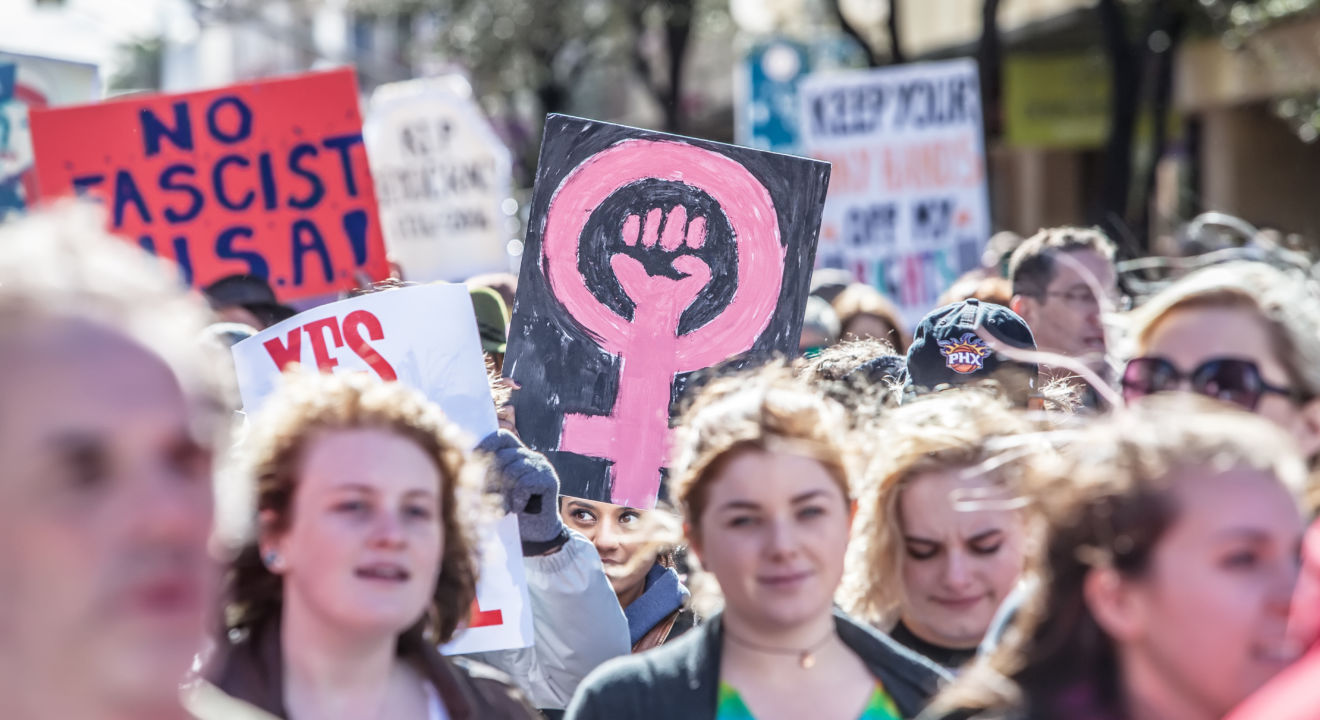Politics March 21, 2017


The feminist goal of collectively empowering women has somehow gotten lost in translation.
Instead of working together to fight for women’s rights, different strains of “feminism” have emerged and are now continuously pitting women against each other.
Today, there are at least five different types of feminism, each with a different idea of what it really means to stand for women.
RELATED: Ladies, I’ve Seen the Enemy and It Is Us
For starters, white feminism is largely criticized for only benefiting straight, cisgender, white women. This type of feminism is said to take a “one size fits all approach” so that only white, middle-class women can fit the mold.
Think: Taylor Swift or Jennifer Lawrence.
When Taylor Swift, the feminist pop sensation, didn’t show up to the Women’s March on Jan. 21, many of her fans criticized her for touting female empowerment just to rack up sales.
RELATED: Is Taylor Swift Even Feminist?
And in fact, sometimes even Emma Watson and her HeForShe campaign have been criticized as a blatant example of white feminism.
Conversely, intersectional feminism acknowledges that not everyone experiences society like a white woman. Though the term seems like the latest feminist buzzword, it was actually coined decades ago in 1989 by critical race theory scholar, Kimberlé Williams Crenshaw.
If feminism advocates for women’s rights, intersectional feminism is about understanding how not all women’s rights are the same. Instead, a woman’s overlapping identities – such as race, religion, sexual orientation and class – impact the way she experiences oppression.
And while it may seem more inclusive on the surface, it has also been criticized for outrightly penalizing Caucasian feminists for being white.
RELATED: Is There Room for Pro-Life Women in the Feminist Movement?
During the Women’s March, many white women came forward, explaining how they felt unwanted at the event.
Prior to the rally, Jennifer Willis, a 50-year-old wedding minister from South Carolina, told The New York Times, “This is a women’s march. We’re supposed to be allies in equal pay, marriage, adoption. Why is it now about, ‘White women don’t understand black women?'”
Corporate feminism, on the other hand, is a term used to describe the business of corporate-sponsored “feminist” events where affluent women get together to talk about empowering less affluent women around the world. Jessica Bennet from The New York Times writes, “What were once grass-roots gatherings have become commercial enterprises: star-studded events with corporate sponsors like Toyota and Walmart.”
Although it’s great to inspire other women and to bring people together to have conversations about these issues, it’s criticized to be more about feeling good – and making money – than fixing actual problems.
RELATED: People Are Really Mad About This Audi Super Bowl Ad
And let’s not forget about businesses like Audi or Thinx that seem to use only use feminism as a shameless marketing tactic.
Trans-exclusionary radical feminism, or TERF for short, is basically a hateful message towards transgender women (and transgender people as a whole). This group advocates for harm towards trans women, arguing that trans women aren’t really women because they were assigned “male” at birth.
Not only that, but this kind of feminism uses rhetoric suggesting that trans women have a high potential of being rapists or that they are “men invading women’s spaces.”
For most people, however, they seem to agree that TERF just describes harmful belief systems.
And on top of all of this, you have pro-life feminists who are often dismissed as “fake feminists” because of their pro-life beliefs. To pro-lifers like New Wave Feminists, they believe in protecting the “most vulnerable member of the human family.” Critics, however, believe that being pro-life and feminist are mutually exclusive because it takes away a woman’s right to decide what to do with her own body.
RELATED: What It’s Like to Be a Pro-Life Feminist (Yes, You Read That Correctly)
So where do women draw the line? How can women push aside their differences to actually fight for women as a whole?
Right now, the problem is – and this is important – that depending on what feminist group you identify with, there is always a strongly held belief that something is wrong with the people who aren’t like you. And then that often translates towards hateful comments and actions towards those people you’ve labeled as “others.”
When something as powerful as the “Fearless Girl” statue – the bronze statue of a child created by Kristen Visbal on the eve of International Women’s Day – appears, one would probably expect just praise and support for the important message it carries.
RELATED: Offensive Kellyanne Conway Joke Shows Sexism Is a Bipartisan Issue
Unfortunately, feminism in today’s society has shifted to a place abundant in disrespect towards other groups. The “Fearless Girl” statue on its own was criticized for being a false portrayal of feminism because, as The New York Times writes, “The point of ‘Fearless Girl’ was to advertise a State Street initiative pushing companies to include more women on their boards.”
And while there is a place to criticize things like corporate feminism, isn’t it more important to figure out a way to unite ourselves as women, despite our differences? Whether you are a trans woman, a woman of color or a white woman, it should be enough all these women are working towards the same goal of equality, acceptance and respect.
Right now, women are divided. And if we don’t act and remedy this problem quickly, we’ll be conquered in the long run.